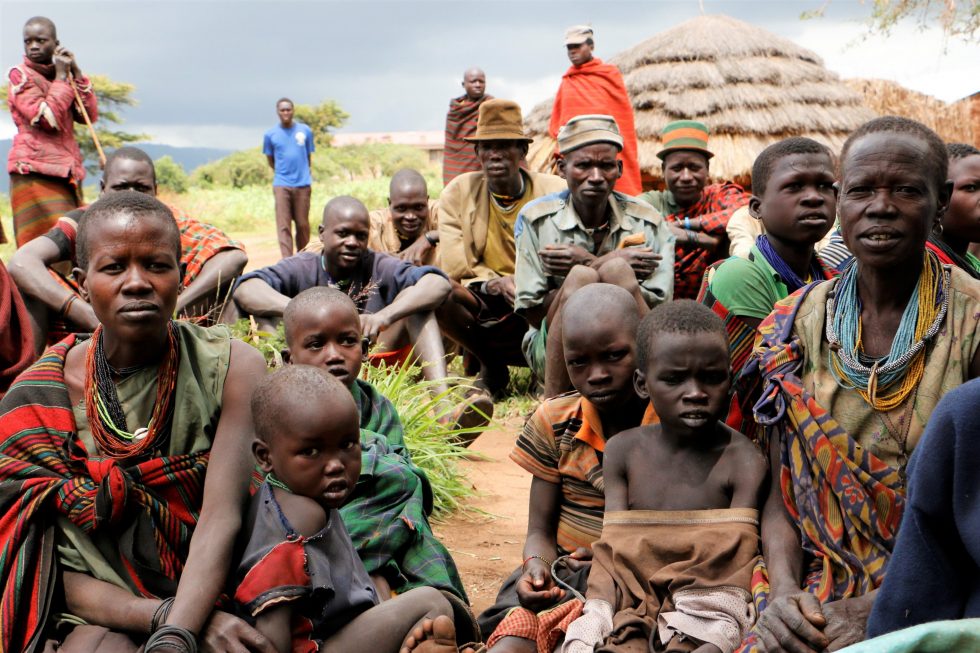Museveni Asks Developing Countries To Push For Land Registration As Uganda Hosts Global Land Learning Week.

President Yoweri Museveni has called upon developing countries, especially in Sub-Saharan Africa to push for land registration to ensure security of the tenure and realise economic transformation.
In his message delivered by Vice President Rtd Maj Jessica Alupo at the Land Learning Week on June 12 at Speke Resort Munyonyo, Museveni said land is a great factor to development and being registered is the first key step to safeguard it and reduce on overwhelming land cases.
He revealed that at least 70 percent of Uganda’s land is yet to be registered which will lock the land for development.
“Government should be mindful and protect their citizens from land evictions, which adversely affect the majority and most vulnerable categories of owners and users,” Mr Museveni said.
He added: “It is now important for land governance matters to guide all the stakeholders in ensuring that there is certainty of land ownership, which enables citizens to correctly and openly identify and recognize land owners and any other user rights that exist on the land at any one time.This, in turn, should lead to greater social cohesion.”

Statistics presented by Ms Alupo indicated that Uganda’s land estimated to only 30 percent is registered. With less than 10 percent land in Sub-Saharan Africa registered, an indicator of a process that needs considerable attention in terms of proper land registration.
The President thus called for the need for land governance interventions to ensure security of tenure through building and maintaining an open, transparent identification and mediation processes.
He explained that evictions cause untold social-political instability, tenure insecurity, and landlessness.
President Museveni said that appreciating this will be the basis of achieving industrialization and urbanization due to the over increasing population projected at 100 million in 2050.
He called on leaders to agitate for industrialization rather than agriculture, saying land can never be enough for all the people unless they invest more in urbanization and industrialisation.

In her remarks, lands Minister Judith Nabakooba said through global partnerships, the discussions have a potential to shape land governance in Uganda. Organised under the theme; “Government and civil society partnerships in land governance in global land in 2024' Ms Nabakooba said the learning week is timely, coming at a time when millions of people, communities and businesses around the world especially in the developing economies are grappling with the protection of land rights for the land from which they derail their livelihoods.
“Insecure land tenure is a fundamental barrier to every nation towards overcoming the most pressing challenges, including poverty, hunger, urbanisation, climate change, conflict, violence and lack of economic opportunity to transform the lives,” she said.

She noted that there is an urgent call to scale up the security of property rights through registration and documentation of all land rights and ensuring integrated land-use planning at all levels.
The minister said this is because of the nature of Uganda’s growing population rate which is significantly high, estimated at 3.03 percent, and coupled with a fast-growing urbanization rate of 5.2 percent and yet the land is static and highly demanded.
According to Nabakooba, much as Uganda has four tenure systems, namely the Mailo, freehold, leasehold, and customary tenure, Customary tenure is predominant, covering over 60-70 percent, and it remains largely unregistered.
In a bid by government to scale up protection of land rights while ensuring optimal land-use, Ms Nabakooba said a number of policy, institutional, and legal reforms have been put in place, some of which include, the establishment of the 24 Ministry Zonal Offices to decentralize land governance and land administration in the country, the development of the land information systems to improve process efficiency in land governance, access, and availability of land information, and implementation of systematic land adjudication and certification (SLAC). Through SLAC, the ministry has processed over 80,000 certificates of customary certificates and about one million titles in a span of five years.

The ministry of lands has also collaborated with development partners both locally and internationally to ensure land tenure security. The Ambassador of the Kingdom of Netherlands in Uganda, H.E Karin Boven said the Dutch government has partnered with different CSOs to ensure land tenure in different communities.
They also ensured capacity building by training local leaders on how to hand land matters and ensure all people have their rights exercised on land. Dr Mike Taylor, Director International Land Coalition, said through interactions and sharing of Knowledge, land rights and governance will be on fingertips of all delegates and they will in turn disseminate it to their respective countries.
Ms Frances Birungi Odong, the executive director of Uganda Community Based Associations for Women and Child Welfare, called for strengthening of the policies and implement them to protect vulnerable communities.
“Laws are a bit adequate but implementation is still a challenge. Government has no adequate resources to put some of them into action. We need external support to have laws work,” Ms Odong said.
Running from June 9 to 15, the Land Learning week has attracted attendance of more than 100 foreign delegates from over 35 countries and representatives from different local and international Civil Society Organisations (CSOs) and other ministry of Lands’ partners.
What's Your Reaction?























































